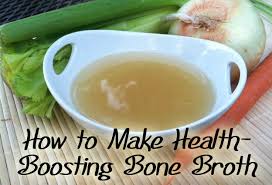The Very Real Risks of Consuming Too Much Protein
Author: Ola Thomas | Category: Health, Uncategorized

With the popularity of “high-protein” diets, you might be tempted to believe you simply can’t overeat protein. But the truth is that consuming excessive protein can actually be quite detrimental to your health.
Eating more protein than your body needs can interfere with your health and fitness goals in a number of ways, including weight gain, extra body fat, stress on your kidneys,1 dehydration, and leaching of important bone minerals…
08 May 2015
 Solitary dining has become more common as busy families are finding it more challenging to carve out time for family meals, particularly when all adult family members work outside of the home.
Solitary dining has become more common as busy families are finding it more challenging to carve out time for family meals, particularly when all adult family members work outside of the home.
 Synthetic polyester workout wear has become popular because it’s lightweight and fast-drying. But there‘s a downside to opting for synthetics over cotton, especially for those working out around you…
Synthetic polyester workout wear has become popular because it’s lightweight and fast-drying. But there‘s a downside to opting for synthetics over cotton, especially for those working out around you… Earlier this year, the Labor Statistics Bureau released data that stated Americans get an average of nearly nine hours of sleep per night.1 This seems high, considering most other surveys suggest Americans are largely sleep deprived.
Earlier this year, the Labor Statistics Bureau released data that stated Americans get an average of nearly nine hours of sleep per night.1 This seems high, considering most other surveys suggest Americans are largely sleep deprived. Eating a high-quality, nutrient-dense diet is one of the most powerful ways to maintain health and prevent disease. Your gut in particular needs proper nourishment in order to allow your health to really flourish.
Eating a high-quality, nutrient-dense diet is one of the most powerful ways to maintain health and prevent disease. Your gut in particular needs proper nourishment in order to allow your health to really flourish. Exercise can reduce your risk of heart disease, cancer, and depression, and it can increase your energy levels, help you think clearer, and even slow down the aging process. However, there are pitfalls that can hamper your workout progress.
Exercise can reduce your risk of heart disease, cancer, and depression, and it can increase your energy levels, help you think clearer, and even slow down the aging process. However, there are pitfalls that can hamper your workout progress. Kale is an unassuming leafy green that many people bypass due to its slightly bitter flavor. But if you learn to use it creatively, kale can be quite tasty, which is only one reason to eat this vegetable. In the realm of superfoods, and certainly of green leafy vegetables, kale is king (or close to it!).
Kale is an unassuming leafy green that many people bypass due to its slightly bitter flavor. But if you learn to use it creatively, kale can be quite tasty, which is only one reason to eat this vegetable. In the realm of superfoods, and certainly of green leafy vegetables, kale is king (or close to it!).
 Potassium is a mineral and an electrolyte that conducts electricity in your body. It plays an important role in heart function, skeletal health, digestion, and muscular function, and is essential for the proper function of all cells, tissues, and organs in your body.
Potassium is a mineral and an electrolyte that conducts electricity in your body. It plays an important role in heart function, skeletal health, digestion, and muscular function, and is essential for the proper function of all cells, tissues, and organs in your body.